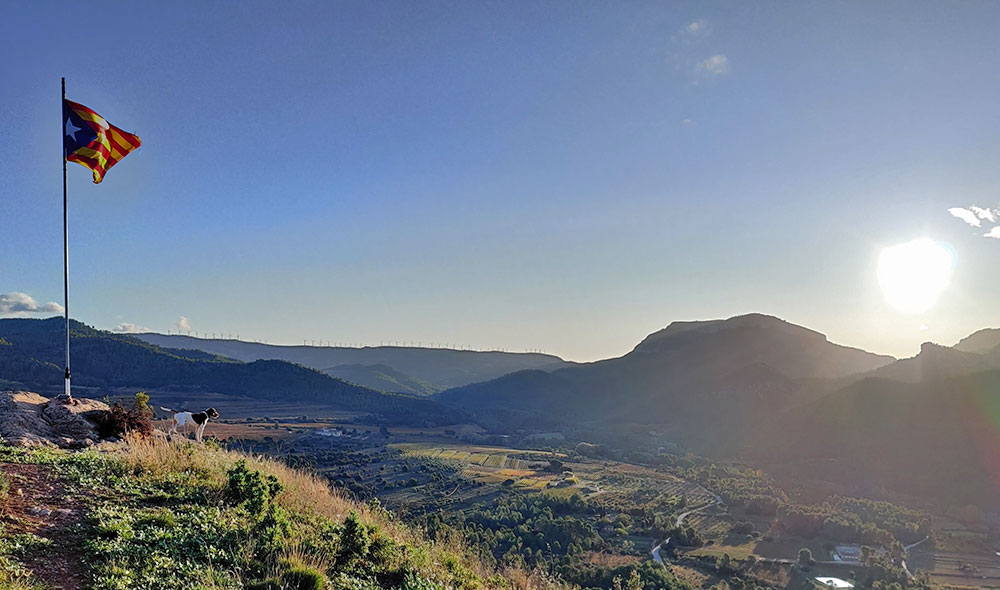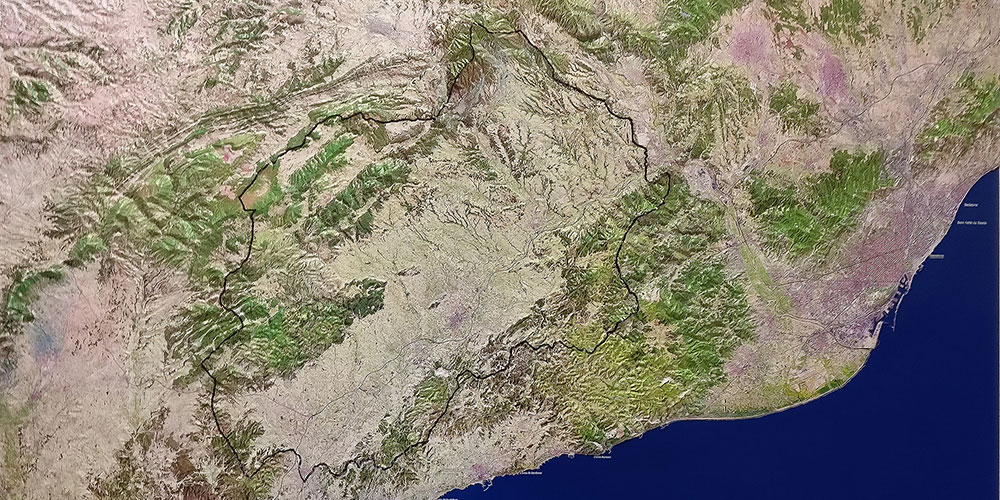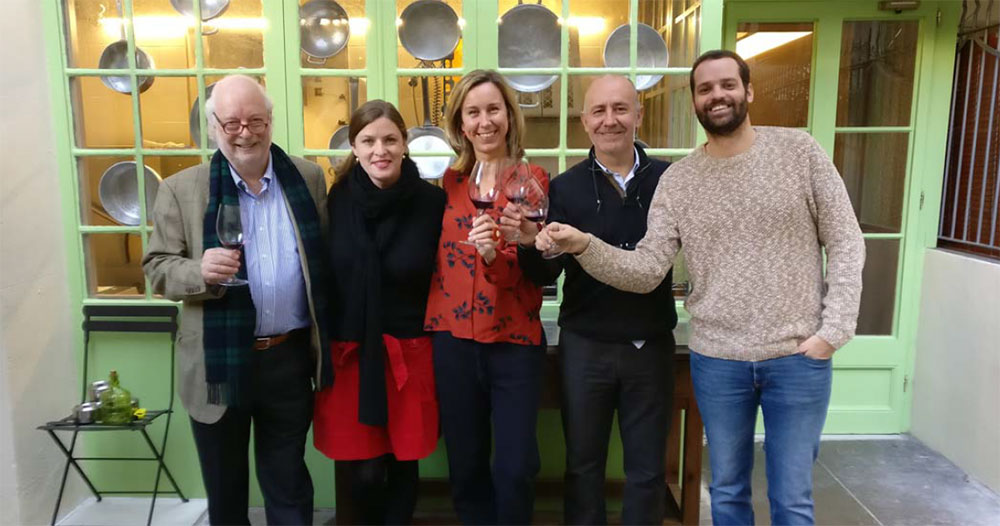If you’ve watched the news lately or just even flipped through the in-flight magazine on a European budget airline, you probably know about the Autonomous Region of Catalonia’s drive to secede from the Spanish State. If not, the nutshell is that the regional Catalan government is calling for a non-binding referendum to decide the issue on November 9th, 2014. The Spanish government’s response is essentially, “It’s the 21st century. You’re not a country. Suck it. And forget about that whole right to free determination thing in the UN charter while you’re at it.”
It’s important to note that despite 300+ years of Spain’s trying to eradicate the Catalan language and culture, even the staunchest of independentists don’t hate Spain. Salvador Batlle of natural wine cellar, Còsmic in DO Empordà says it best, “Spain is an amazing place, but we have to be able to preserve our culture and language.” He was “born an independentist” as were many winemakers due to the Catalan way of life never dying out amongst the pagesos or peasants in Catalonia’s village hinterlands.
It’s not a surprise that either publicly (like Salvador who has the estelada independence flag hanging in front of his winery) or privately, like the larger wineries that try to stay neutral in public, most Catalan winemakers are very pro-independence given that those in the rural, farming areas suffered the brunt of wars over the centuries and have long found that the Spanish State had little to offer them in material terms and a lot to take. What’s changed recently is that the fight has been taken to the urban centers and more importantly, to the highest level Catalan politicians who had tried the hear no independence, see no independence, speak no independence strategy for years.
As something of an admittedly misplaced fart in their general direction, the head of the regional Catalan government in 2004, Josep-Lluís Carod-Rovira called for Catalonia to boycott Madrid’s bid for the 2012 Olympic Games. Madrid being the continual the Susan Lucci of failed Olympic bids, the response from Spain was to boycott the sparkling wine, Cava of which 95% is produced in Catalonia. It worked amazingly well and sales greatly slowed. This, along with many other problems in 2005 (such as ending Catalan language in schools and a massive tax imbalance) saw the Catalan Parliament take things one step further and enact a further autonomy statute that was an attempt at gaining further rights within Spain. At this point the gloves came off and the new boycott in Spain made Cava sales drop a full 7% for the year. This doubly hurt the Cava producers in Penedès who are generally very private on the independence question as they rely on sales outside of Catalonia.
The news stories at the time focused on the Cava aspect, but most winemakers in general sell next to none of their wine to the rest of the Spain State due to fallout from the boycott that landed on all Catalan products. As Patrick Webb, an American exporter of Catalan wines says, “You just can’t go where you meet too much resistance.”
The events from a decade ago have further solidified the resolve of winemakers as they see union with Spain to be a dead-end for their wines. Thankfully for them, there has been a huge rise in the interest of local, regional products at the same time the Spanish market is going to raisin on them. For example, the DO Montsant winery, Venus la Universal by husband and wife winemaking super duo, René Barbier (Clos Mogador) and Sara Pérez (Mas Martinet) sells 40% of its total production to Barcelona alone.
Another example from DO Montsant is Ronadelles whose Cap de Ruc (donkey’s head) wine has seen sales climb in the last five years. While it’s partly due to it being an affordable, easy to drink wine, it’s also in good part due to the donkey head on the label being the national mascot of the Catalans. Thus ordering a bottle not only supports a local wine but also puts a subtle salute to Catalonia on your table.
The continuing boycott from the Spanish State has also meant that the Catalans have looked to foreign markets for their wines such as in DOQ Priorat where they export up to 85% of their total yearly production. This a bit of mixed blessings for them though as Catalonia still has to export their wines with “Product of Spain” on the label. This initially helped them as Spain’s profile as a producer of great wines at great prices has exploded in the last 20 years, taking Catalonia along with it. Unfortunately, the other shoe has fallen with this as according to Patrick, “Catalan producers simply can’t compete on price because they don’t have the volume that producers in Ribera del Duero or La Rioja do and that’s where people abroad typically turn when looking for ‘Spanish wine’. The Catalan wine quality is excellent due to being mostly small producers, but competing purely on price alone is a no man’s land.”
Ultimately, if a referendum were to actually be held in November and if the result was Yes (actually Sí and Sí due to it being a bizarre two question ballot) and if Spain somehow let Catalonia go, what would Catalan wine become? Depending on who you ask, it’s either a fantastic opportunity or a barrel of vinegar. According to Salvador at Còsmic, it would offer the chance to “show what is unique about Catalonia from grapes such as Garnatxa Roja and Trepat or from the great diversity of regions and styles that are like a micro France.”
Owners Albert Costa and Lluís Llach (a popular singer who has also been a veritable icon in Catalan independentism for decades) of the classic and upscale, Vall Llach don’t feel that much would change for them as they have been and will continue selling wines from the renowned DOQ Priorat. This is of course after years of Priorat becoming a brand unto itself that’s managed to stand out, much like La Rioja, from the rest of Spain’s current wine landscape.
Patrick elaborates further on the issue of a Catalan wine, “You’d essentially be starting from zero in a region that is, at its essence Mediterranean wine with Mediterranean grapes that many of which are known as French. Just look at an example like Croatia to see how hard it is to build up a country brand.”
There are other questions as well such as would Spain keep the name DO Cava given that it’s the only denomination administered at a federal level? If Catalonia lost the name, it could be the moment that Josep Maria Raventós of Raventós i Blanc has been hoping for to reboot the Cava brand under stricter, more craft-oriented rules with his proposed, DO Conca del Riu Anoia or DO Conca for short.
Spain has also stated that an independent Catalonia would have to re-apply for EU membership as it would be a new country and it would in effect make many of Catalonia’s best customers suddenly difficult to reach due to being outside the single market. Of course anyone who thinks about it for a minute realizes that Prime Minister Rajoy is blathering at windmills given that all major roads and railways to Europe pass through Catalonia and it would have to remain within the EU for Spain’s products to remain inside the economic zone and be sold to other member states which is why, in addition to the undue tax burden, Spain absolutely does not want to let Catalonia go.
Given all the if’s floating around currently, probably the most advisable thing for anyone outside of Spain to do is to open a bottle of one of the 12 Catalan DO’s now so you can say you knew Catalan wine back when it was still Spanish and let history take its course.



